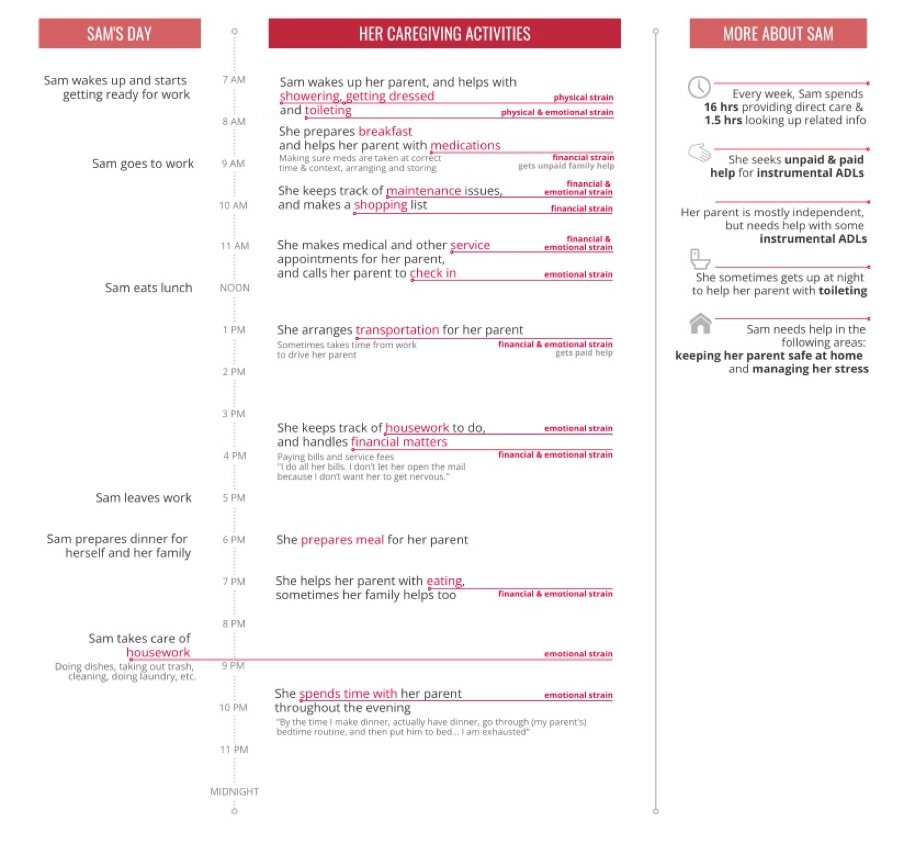The Caregiver Profile
Who are these caregivers and what do they help with? Learn about their life and caregiving situation.
Back to PersonasSam - A Day in the Life of a Family Caregiver
- Sam has been caring for her parent for over 5 years.
- She lives with her parent who has memory issues and emotional/mental health conditions, and sees a doctor about once per month.
- Sam is employed full-time.

Sam's day and caregiving activities
At 7 AM, Sam wakes up and starts getting ready for work. She then wakes up her parent, and helps with showering and getting dressed, which causes physical strain. She also helps with toileting, which cause physical and emotional strain.
At 8 AM, Sam prepares breakfast and helps her parent with medications. This includes making sure meds are taken at correct times and context, as well as arranging and storing meds. This causes financial strain.
Sam goes to work at 9 AM.
At 10 AM, Sam keeps track of maintenance issues and makes a shopping list. These activities cause financial and emotional strain.
At 11 AM, Sam makes medical and other service appointments for her parent, which causes financial and emotional strain. She then calls her parent to check in, which causes emotional strain.
Same eats lunch at noon.
At 1 PM, Sam arranges transportation for her parent. Sometimes she takes time away from work to drive her parent, and sometimes she gets paid help. This causes financial and emotional strain.
At 4 PM, Sam keeps track of housework to do, which causes emotional strain. She also handles financial matters, including paying bills and service fees. She says she does all of her parent's bills and opens all of their mail because she doesn't want them to get nervous. These activities cause financial and emotional strain.
Sam leaves work at 5 PM.
At 6 PM, Sam prepares dinner for herself and her family. She also prepares a meal for her parent.
At 7 PM, Sam helps her parent with eating, which causes emotional strain. Sometimes her family helps too.
At 9 PM, Sam takes care of housework. This includes doing dishes, taking out the trash, cleaning, and doing laundry, among other tasks. These activities cause emotional strain.
Sam spends time with her parent throughout the evening, which causes emotional strain. She says, "By the time I make dinner, actually have dinner, go through my parent's bedtime routine, and then put them to bed, I am exhausted."
More about Sam
- Sam spends 16 hours providing direct care and 1.5 hours looking up related information every week.
- She seeks both paid and unpaid help for instrumental ADLs.
- Her parent is mostly independent, but needs help with some instrumental ADLs.
- She sometimes gets up at night to help her parent with toileting.
- Sam needs help in the following areas: keeping her parent safe at home and managing her stress.